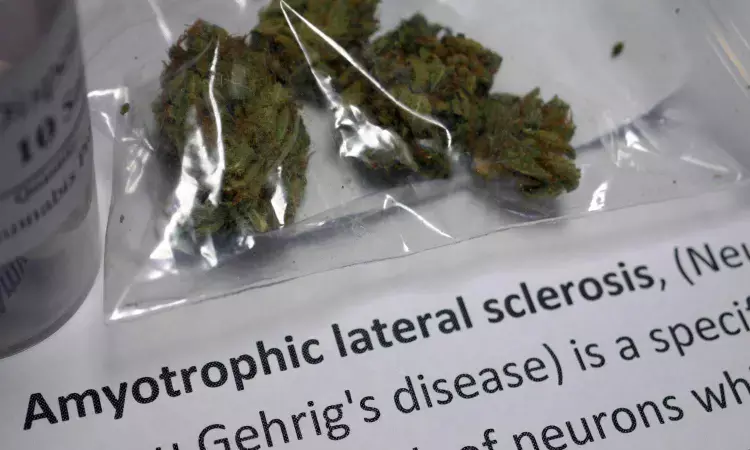- Home
- Medical news & Guidelines
- Anesthesiology
- Cardiology and CTVS
- Critical Care
- Dentistry
- Dermatology
- Diabetes and Endocrinology
- ENT
- Gastroenterology
- Medicine
- Nephrology
- Neurology
- Obstretics-Gynaecology
- Oncology
- Ophthalmology
- Orthopaedics
- Pediatrics-Neonatology
- Psychiatry
- Pulmonology
- Radiology
- Surgery
- Urology
- Laboratory Medicine
- Diet
- Nursing
- Paramedical
- Physiotherapy
- Health news
- Fact Check
- Bone Health Fact Check
- Brain Health Fact Check
- Cancer Related Fact Check
- Child Care Fact Check
- Dental and oral health fact check
- Diabetes and metabolic health fact check
- Diet and Nutrition Fact Check
- Eye and ENT Care Fact Check
- Fitness fact check
- Gut health fact check
- Heart health fact check
- Kidney health fact check
- Medical education fact check
- Men's health fact check
- Respiratory fact check
- Skin and hair care fact check
- Vaccine and Immunization fact check
- Women's health fact check
- AYUSH
- State News
- Andaman and Nicobar Islands
- Andhra Pradesh
- Arunachal Pradesh
- Assam
- Bihar
- Chandigarh
- Chattisgarh
- Dadra and Nagar Haveli
- Daman and Diu
- Delhi
- Goa
- Gujarat
- Haryana
- Himachal Pradesh
- Jammu & Kashmir
- Jharkhand
- Karnataka
- Kerala
- Ladakh
- Lakshadweep
- Madhya Pradesh
- Maharashtra
- Manipur
- Meghalaya
- Mizoram
- Nagaland
- Odisha
- Puducherry
- Punjab
- Rajasthan
- Sikkim
- Tamil Nadu
- Telangana
- Tripura
- Uttar Pradesh
- Uttrakhand
- West Bengal
- Medical Education
- Industry
Breakthrough Brain-Computer Interface may Restore Conversational Speech among ALS Patients: NEJM

UK: A brain-computer interface (BCI) surgically implanted in a 45-year-old man with amyotrophic lateral sclerosis (ALS) and severe dysarthria worked well enough to swiftly restore conversational speech, according to research published in the New England Journal of Medicine on August 14, 2024.
Amyotrophic lateral sclerosis (ALS), sometimes known as ALS, is a neurological illness that destroys nerve cells in the brain and spinal cord. ALS leads to loss of muscular control. Muscle twitching and weakness in an arm or leg, as well as difficulty swallowing or slurred speech, are common early signs of ALS. ALS eventually impairs control of the muscles required to move, speak, eat, and breathe. There is no cure for this deadly condition. Nicholas S. Card, From the Departments of Neurological Surgery, Boston, et.al report the result of decoding the neural cortical activity of a 45-year-old man.
For the conduction of the research, a 45-year-old man with amyotrophic lateral sclerosis, tetraparesis, and severe dysarthria, had four microelectrode arrays surgically implanted into his left ventral precentral gyrus 5 years after the disease began; these arrays recorded neural activity from 256 intracortical electrodes.
The Decoded phrases were shown on a screen before being vocalized using text-to-speech software that mimicked his pre-ALS voice.
They revealed that on the first day of use (25 days after surgery), the neuroprosthesis obtained 99.6% accuracy with a 50-word vocabulary. Calibration of the neuroprosthesis involved 30 minutes of brain recordings while the person spoke, followed by processing. After 1.4 hours of system training on the second day, the neuroprosthesis achieved 90.2% accuracy with a vocabulary of 125,000 words. The neuroprosthesis maintained 97.5% accuracy after 8.4 months of usage, allowing for self-paced discussions at a rate of 32 words per minute for over 248 hours.
“After brief training, an intracortical speech neuroprosthesis performed well enough to restore conversational communication in a person with ALS and severe dysarthria”, researchers concluded.
Reference
Elizabeth G. Phimister, Edward F. Chang, Brain-Computer Interfaces for Restoring Communication, New England Journal of Medicine, 391, 7, (654-657), (2024)./doi/full/10.1056/NEJMe2407363
Deepanshi Bhatnagar (MSc Nutrition and Dietetics) is a professional with a master's degree in Nutrition and Dietetics from MRIIRS. With a strong academic background, she is well-versed in the principles of nutrition and dietary science. At Medical Dialogues, Deepanshi serves as the correspondent for fact-checking, where she is responsible for verifying and evaluating claims related to nutrition and diet, ensuring that all content is accurate, evidence-based, and scientifically sound.
Dr Kamal Kant Kohli-MBBS, DTCD- a chest specialist with more than 30 years of practice and a flair for writing clinical articles, Dr Kamal Kant Kohli joined Medical Dialogues as a Chief Editor of Medical News. Besides writing articles, as an editor, he proofreads and verifies all the medical content published on Medical Dialogues including those coming from journals, studies,medical conferences,guidelines etc. Email: drkohli@medicaldialogues.in. Contact no. 011-43720751


